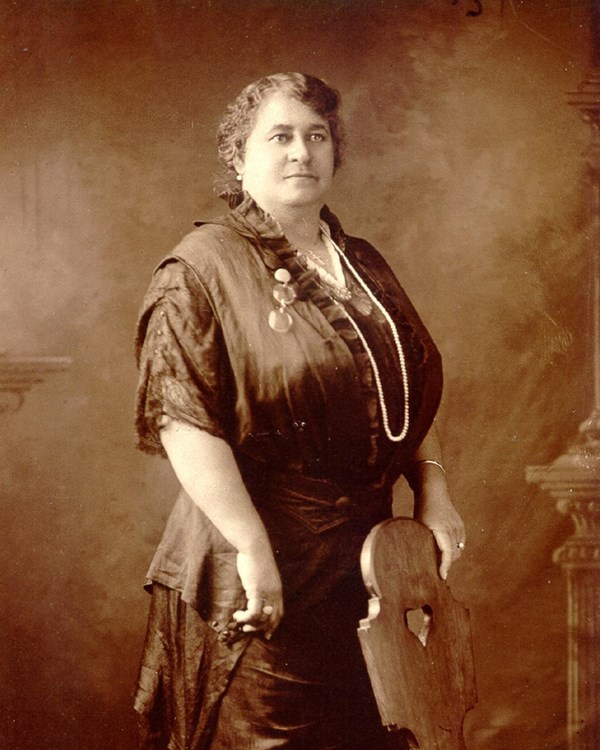Maggie L. Walker epitomizes the term trailblazer. Besides being a teacher, civil rights leader, disability advocate, and businesswoman, she was the first African-American woman to charter a bank and serve as a bank president.
The daughter of a former slave, Walker was born in Richmond, Virginia, on July 15, 1864. As a teenager, she joined the Independent Order of St. Luke, an organization dedicated to promoting Black economic independence and providing African Americans access to healthcare, education, and other important resources. Upon graduating from high school, Walker worked as a teacher for three years before she was married in 1886.
After her teaching career, Walker focused on the Independent Order of St. Luke. She rose through the organization’s ranks, gaining the title Right Worthy Grand Secretary, a top leadership position, in 1899, a role she held until her death. Walker played a vital role in the organization, even saving it from financial collapse brought on by a previous leader’s mismanagement of funds.
In 1902, Walker established The St. Luke Herald, a newspaper for the Independent Order of St. Luke. A year later, she created the St. Luke Penny Savings Bank, also serving as its president. This made Walker the first African-American woman to lead and charter a bank in the United States. The St. Luke Penny Savings Bank was a source of pride for the Black community in Richmond, serving as an example of financial success and independence.
Besides the bank and the Independent Order of St. Luke, Walker devoted her time to advocacy. She was a prominent advocate for civil rights, organizing and serving as the Vice President of the Richmond branch of the National Association for the Advancement of Colored People (NAACP), serving as a member of the Virginia Interracial Commission, and protesting against segregation. Walker was also a prominent advocate for the disabled after becoming paralyzed herself in the late 1920s.
Walker advocated for women’s rights as well, campaigning for women’s suffrage and serving on the board of trustees of several women’s organizations. Particularly, she served on the boards of the National Association of Colored Women (NACW) and the Virginia Industrial School for Girls.
Outside her work, Walker married her husband, Armstead Walker Jr., in 1886. The couple had three sons and a foster daughter. In 1915, tragedy struck when her husband was accidentally killed by their son, Russell Walker, mistaken for a robber. Her husband’s death left Walker to manage her household, and her health continued to decline. Despite her difficulties, Walker remained tirelessly dedicated to her work. She died on Dec. 15, 1934, of complications of diabetes.
From her work at the Independent Order of St. Luke’s, the establishment of The St. Luke Herald and the St. Luke Penny Savings Bank, and her advocacy for the marginalized, Maggie L. Walker epitomized a true American pioneer. Today, her home in Richmond is designated as a historical site and preserved by the National Park Service, open to the public for tours.














